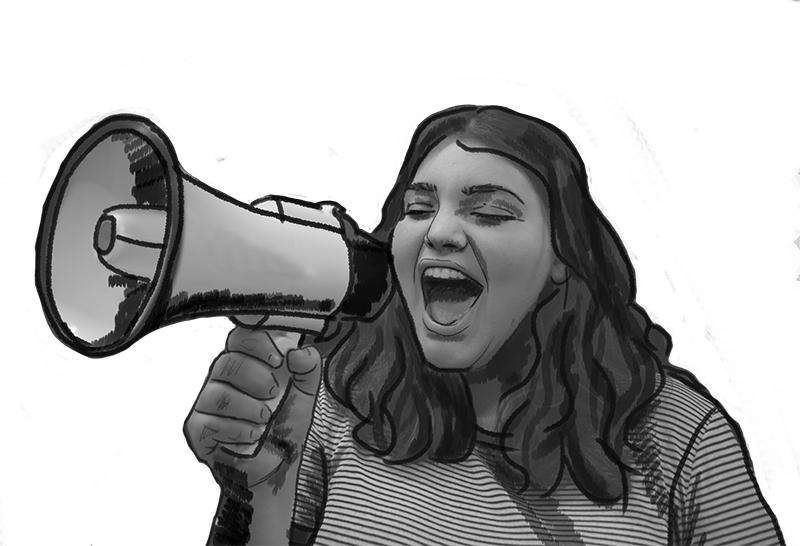We all know that one jerk on Facebook — the one who says a mildly-to-very offensive thing, and then when people complain, claims they have the constitutional right to be a jerk and state their opinion. Yes, said jerk is technically correct — they have the ‘freedom of speech’ to say whatever they want. But other citizens have every right to express their displeasure with their speech. After all, they’re also just exercising their freedom of speech.
But freedom of speech, meaning the right to express opinions without censorship or restraint from the government, isn’t 100 percent guaranteed. Several Supreme Court cases have upheld that hate speech inciting immediate violence, libel, slander and obscene content are not protected under the First Amendment.
To send a message about the limitations of hate speech and free speech and to clear up misunderstandings about the First Amendment, the government needs to establish a harder line against speech that causes harm.
Currently, the Supreme Court protects hate speech as long as it doesn’t promote imminent violence, as declared in Brandenburg v. Ohio. The 1969 Supreme Court Case revolving around the KKK’s right to rally stated that the government cannot punish an abstract advocacy of force.
Recently, hate speech has become more commonplace. Not to sound like a parrot, but a lot of it has to do with the rise of Donald Trump. Many right-leaning Americans have decided that ‘political correctness has gone too far.’ Apparently, respecting human rights is too much for some people once it inconveniences them slightly. Those who don’t want to change with social tides lash out with what is essentially hate speech. Because even though hate speech is intrinsically linked to hate crimes, according to The Leadership Conference on Civil and Human Rights, ‘they’re just words’ to the anti-SJW’s.
The thing is, it’s not just words. At recent Trump rallies, where violence has broken out to a point that his March 11 Chicago rally had to be canceled, it’s quite clear that Trump has gone beyond what should be his First Amendment rights. When Trump says, “I’d like to punch him in the face, I’ll tell you that,” or “If you see somebody getting ready to throw a tomato, knock the crap out of ‘em, would you? Seriously. OK? Just knock the hell — I promise you, I will pay for the legal fees. I promise. I promise,” that crosses the line between an abstract advocacy of force and right into a concrete advocacy of force that can and will cause immediate danger.
As the use of hate speech has risen, I find myself questioning my position on the Supreme Court’s decision to define unacceptable speech as only speech that causes immediate harm. On one hand, I recognize the utmost importance of checking government power. To allow the government to censor speech would present many dilemmas. However, I also recognize the severity of the situation in America regarding hate. I shudder to think that it’s OK for the KKK to say whatever they want, because I know that the speech that the KKK uses turns into physical actions that hurt.
What I can advocate for is that individual citizens work to put a stop to hate speech that is government-protected, through standing up to perpetrators of intolerance. The fact that one can say ‘I want to kill all [blanks]’ and have the full protection of the law shouldn’t be something that people celebrate or take advantage of.
Just because the government shouldn’t excessively censor speech doesn’t mean that we the people should condone it.
Hate speech might technically be your right, but it isn’t right.

